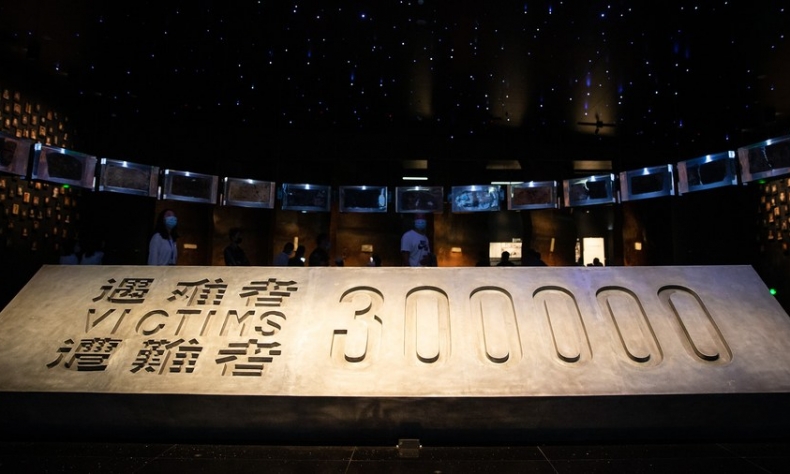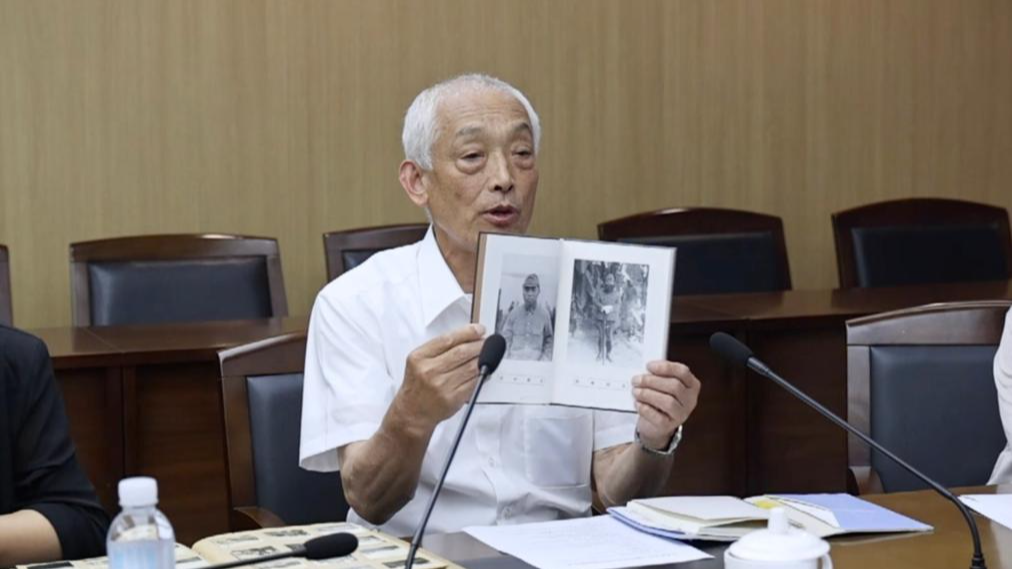Stop Playing the Victim: Japan Must Acknowledge Its Role in WWII

Only by respecting history and learning from it can we truly embark on the path of peace and development.
China’s summer box office champion, Dead to Rights, is a film about the Nanjing Massacre committed by invading Japanese troops. Set in December 1937, the story follows a group of ordinary Nanjing residents who, while hiding in a photo studio, risk their lives to secretly transport photographs taken by a Japanese military photographer out of the city. Those photos captured the atrocities committed by the Imperial Japanese Army after the city fell.
Over six weeks, the Japanese invaders massacred more than 300,000 people in Nanjing, including captured soldiers and civilians—many by burial alive—and raped or gang-raped over 20,000 women. During the Chinese People’s War of Resistance against Japanese Aggression (1931-45), the combined casualties of the Chinese military and civilians reached 35 million. When the Chinese Embassy in Japan shared the historical background of Dead to Rights on social media, it was met with attacks from Japanese netizens. Many denounced the film as official anti-Japanese propaganda and urged the Chinese Government to curb public anti-Japanese sentiment.
China was not the sole victim of Japanese fascism; for instance, it resulted in over 10 million casualties across other Asian countries. Meanwhile, during the Pacific War, which started with the attack on Pearl Harbor and concluded with two atomic bombings in Japan, the U.S. suffered 410,000 fatalities.
Japan has consistently refused to acknowledge its wartime aggression. In its history textbooks, it downplays and distorts its atrocities, instead portraying itself as a victim of the war and misleading younger generations about the historical truth.

The main basis for Japan’s so-called victim narrative lies in the atomic bombings of Hiroshima and Nagasaki on August 6 and 9, 1945, when the U.S. dropped atomic bombs on the two cities, causing massive casualties and damage. Every year, on the anniversaries of the bombings, Japan holds various commemorative events, delivers emotional speeches, and displays harrowing images and videos of the victims to highlight the devastation. Through such efforts, it seeks to portray itself as a victim of the war, win sympathy from the international community, and divert attention from the heinous crimes it committed during the conflict—crimes it steadfastly avoids acknowledging. This strategy seeks to leverage its victim image to soften international condemnation of its historical wrongdoing and to recast itself as a so-called “peaceful nation.”
It must be made clear that Japan brought the atomic bombings on itself through its own actions. In the final stages of the war, the Japanese Government adopted the fanatical slogan of “100 million people ready to die” and drew up detailed plans for a homeland defense campaign, intending to mobilize even women and children to serve as human shields against the Allied forces. In the Battle of Okinawa in March 1945, Japanese forces distributed their meager supply of grenades to local civilians, urging them to kill themselves rather than be taken prisoner by U.S. troops. By the battle’s end, the small island of Okinawa saw the deaths of some 12,000 American soldiers, 94,000 Japanese troops, and 94,000 Okinawan civilians—a total of around 200,000 lives lost.
Ironically, the U.S. fostered Japan as a vanguard against the socialist bloc and China, and tolerated Japan’s historical distortions. Remarks on August 5 by U.S. State Department spokesperson Tammy Bruce were telling. She said over the past eight decades, the two countries have stood together to defend peace and prosperity in the Pacific region.
Forgetting the history means betrayal. On the occasion of the 80th anniversary of the victory of the Chinese People’s War of Resistance Against Japanese Aggression and the World Anti-Fascist War, China once again urges Japan to face up to history, learn from it, offer a sincere apology to the peoples of the victimized countries, and shoulder its due historical responsibility. Only by respecting history and learning from it can we truly embark on the path of peace and development. Japan should acknowledge this fact, cease portraying itself as a victim, and demonstrate through concrete actions its respect for history and its commitment to peace.
 Facebook
Facebook
 Twitter
Twitter
 Linkedin
Linkedin
 Google +
Google +










